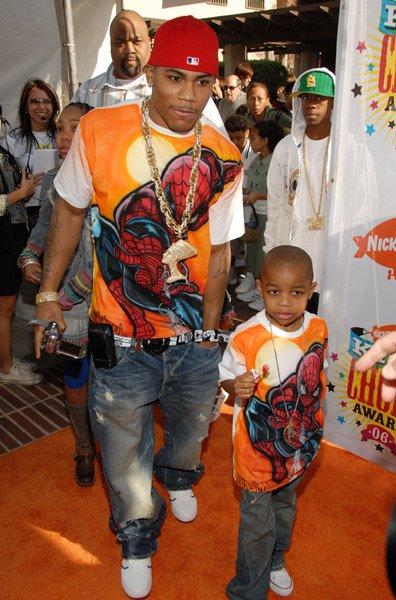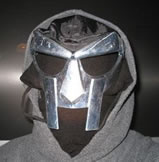I wasn’t gonna do this, ‘cause I know I’ll catch all kinds of shit and lose mad respect just by putting my opinion out here, but here I go anyway. Just to get this out of the way, I have nothing but love for Joe Budden. But he wasn’t one of the 10 most important rappers of the decade.
With my list, I’m trying to pick the 10 people who I think did the best to move rap forward during this decade. As the 2000s started, many of us thought that rap had seen its glory days and made as much sales impact as it possibly could. Yet, in the decade that saw the demise of the album, singles (a medium rap is perfect for) brought about the second coming of the music industry. Then, that died, too. As we face 2010, we see newer ways of consuming music (and musicians), and the majors must adapt their cult of personality into a new sales method. These rappers have either proposed different business models, or, even better, they did it for the art: proving that content really is more important than money. Because hip hop is so much more than gold records. But, at the same time, gold is crucial.
The Ten Most Important Rappers of The Decade

10. OutKast.
OutKast’s continuing relevance may be a legitimate subject for discussion, but their releases before 2004 are some of the best hip hop in history. Double-Grammy-winning, 4x platinum Stankonia is pure genius, bringing multiple styles together in a way that had never been done before. Their follow up, 2003’s Speakerboxxx/The Love Below may just be the 2d best double-album in history. And like the first greatest double-album (The White Album), it features all kinds of experimentation and reach (Take Off Your Cool, Vibrate), as well as the band’s tried-and-true formula for creative, hitmaking pop-hip-hop (Hey Ya, Roses, Church, The Way You Move). It was only the second rap album ever to win the Best Record grammy (Lauryn Hill got the first one). Although the band’s label, Aquemini Records, died in ’04, Big Boi’s “solo label” signed Sleepy Brown, Bubba Sparxxx, and Killer Mike, proving that OutKast still has relevance.

9. Masta Ace.
Ace is one of those rappers I can turn to any time and depend on him to lift my spirits. Arguably, he deserves a place on a 1990s retrospective rather than this one, but consider this my “personal bias” choice for the list. Every list has one. Ace’s 2000s catalog includes Disposable Arts (2001) and A Long Hot Summer (2005), both perfect records from end-to-end. He’s also able to hit the beat and carry a hook in a way that many “educated” or “conscious” rappers can’t. (I’m looking at you, Talib and Mos Def.) He’s also clearly the inspiration for Eminem’s style. Listen to them side-by-side and you’ll see exactly what I mean.
 8. Nas.
8. Nas.
Nasir Jones gets the longevity award. He also declared that hip hop was dead and then turned around proved, through frontal attacks on Bill O’Reilly and the rest of Faux “News,” that rap was still just as powerful a tool for revolution and rage as it was when Chuck D first threw bass into our faces and Yo Yo outrhymed Ice Cube on their reimagining of James Brown’s “It’s a Mans, Mans, Mans, Mans World.” I guess some complain that Nas doesn’t have anything new to say and that his flow doesn’t change up very much, but his influence as an elder statesman of aggressive, provocative rap–the kind your daddy used to make–is clear and present.
6/7. Clipse and Lil’ Wayne (tie).
Clipse aren’t on this list because they made gangsta rap poetry after it was cool, because quite a folks have done that successfully (I’m looking at you, Game and Fiddy). They’re here because they blazed the mixtape market with their “We Got It 4 Cheap” series. Lil’ Wayne is sharing their space in the spotlight partly because, even more than Clipse, his entire career was (and kind of still is) built around mixtapes. Wait—by giving away music, you can actually make money? Turns out you can. The Grateful Dead proved that 40 years ago, and these dudes learned the lesson. Now, before you start giving me shit about how wonderful Lil’ Wayne is and how he should be number one and blah-blah-blah, consider this: All he really did was combine Del’s Deltron 3000 persona with a little MF DOOM and Ghostface Killa. He’s got decent flow, but his lyrics don’t make much sense most of the time and he produces a lot more output than he should. Okay, now you can yell at me.

5. Ghostface Killa and Raekwon (as a duo).
Who would have thought that GZA and RZA would not end up being the most relevant refugees from the Wu Tang Clan? But together, GFK and Raekwon have spend the last ten years proving that grimey, gutter-level rap can have heart and soul, and can speak to all people: Gangstas and victims, drug sellers and cops. I’ve met members of all types who dig one or both of this dynamic duo. And they’re never better than when they’re together. Here’s a list of just the best albums they’ve dropped this decade—to say nothing of countless others, guest appearances, etc.: Supreme Clientele (2000), Bulletproof Wallets (2001), The Lex Diamond Story (2003), Pretty Toney Album (2004), Fishscale (2006), The Vatican Vol.1 (2006), Hidden Darts (2007), Only Built 4 Cuban Linx… Pt. II (2009). Wow.

4. Eminem.
Although his greatest album came out in the 1990s, this decade, Em “discovered” 50 Cent. That alone makes him highly influential. He also released a 2009 album wasn’t my cup of tea that managed to actually generate significant sales—no small feat. And Encore (2004), The Eminem Show (2002), and The Marshall Mathers LP (2000) are all fantastic. Eminem represents a type of rap rarely seen before (and even after) he came on the scene: Self-referential, self-aggrandizing, self-denigrating, and self-exaggerating. He’s 100% narcissistic, but he doesn’t hide it, try to justify it, or even appear embarrassed by it. I can’t say the same for “Relapse,” which seems to be more of a guy trying to sound like Em than Em himself, but that album is why Marshall isn’t higher on this list. So nuff said about that. Let’s just focus on the volume of singles, which combine pop references, humor, violence, and even true insight, all masquerading as music to piss your parents off. But he seems to be finding, now, that it’s hard to grow up when you made millions being puerile.
3. Kanye West.
Kanye is pure bling. But he’s funny, and even charming. Like that cute dog who keeps eating your best leather loafers and shitting on the rug. His influence is undeniable, and his skills as a hitmaker have been proven time and again. Plus, he had the sack to ambush George Bush on national TV.

2. Jay-Z.
Full disclosure: Hova is my favorite rapper of all time. And I recognized that he did some of his best work in the 1990s. But let’s look at what he did this decade: He broke out with 2000’s The Dynasty: Roc La Familia, which brought us The Neptunes, Just Blaze, and Kanye West. In 2001 he fought famously with Nas at Summer Jam (in the greatest beef in hip hop history) and delivered The Blueprint—one of the greatest albums of any genre of all time. 2002 brought Blueprint²: The Gift & the Curse, which might not have been perfect, but it was the rare example of a hip hop double album that had massive record sales. In ’03, he held his “retirement concert” and delivered The Black Album. He also gave some verses to his buddy Beans on “Dear Summer,” one of the finest Hova appearances of his career. 2004 brought his collaboration with Linkin Park, proving that rap could cross over in a big way to the pseudo-metal crowd, and proving that a dude with a 15-year-career could still pull money out of young kids’ wallets. And let’s not forget The Grey Album, which made mash-ups a phenomenon–something more than just funny stuff a drunk DJ could spin on Friday nights. And let’s not forget that he became a major executive and now is at the forefront of concert cross-promotion. His releases in the later part of the decade, including Kingdom Come, American Gangster, and the massive disappointment of Blueprint 3, somewhat tarnish his legacy. But not all that much.

1. Nelly.
Nelly proved that record sales and six-pack abs are the most important thing a rapper can achieve. Ahem. Just kidding.

1. MF DOOM.
I don’t think it is even debatable whether Mr. Dumile had a tremendous impact on the decade. Wu Tang Clan may have worn masks on their album covers, but DOOM went a step further, never being seen without his mask on and even paying stunt doubles to lip sync for him at shows. As Metal Faced Doom, he proved that nerd could be gangsta. As Viktor Vaughn, he proved that nerd could be crude and violent. If you count Operation Doomsday (which came out in 1999), then DOOM (and his various aliases) has a 2000s catalog that is head and shoulders above everyone else’s: This year brought Born Like This, an album that gets better with every listen. Then there’s at least four other certified classics: MM..Food, Vaudeville Villain, Take Me to Your Leader, and Madvillainy. Throw in Danger Doom’s The Mouse and The Mask and the 10 instrumental volumes of Special Herbs, and, truly, who is a more interesting rapper? DOOM proves that rap is far from dead—it’s a vital, provocative format with endless possibilities.



